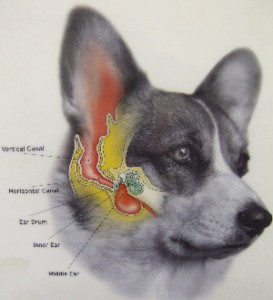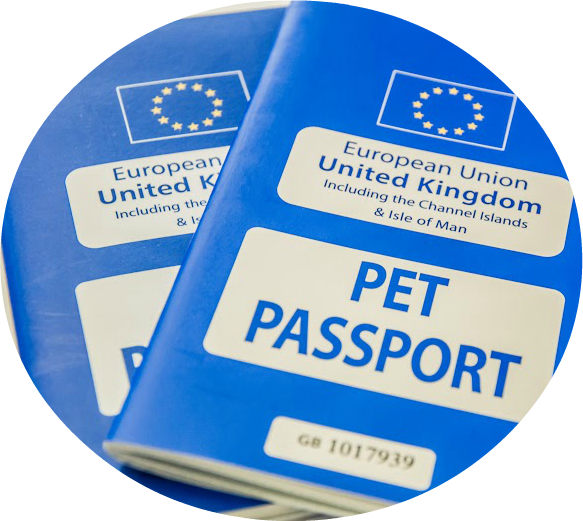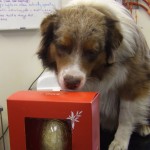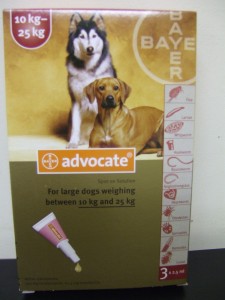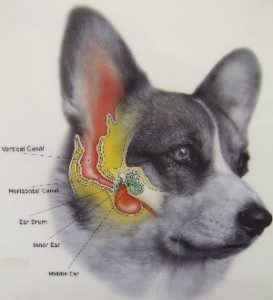
Inside a dogs ear a detailed picture.
Have a look at this ear cleaning video if you would like any tips on how to clean your own dogs ears. Dogs ears should normally look clean when you look inside, so if there is a dark waxy discharge, you can use an ear cleaner to loosen the wax and clean out the ear. We would recommend coming to the surgery to pick up an ear cleaner, and the nurse or vet can recommend the best one to use.
If the ear looks very red, has an abnormal smell, or is sore, then you should make an appointment with your vet, to have it checked before using any ear cleaners.
See www.youngvets.co.uk for contact details of your local surgery
When you first bring your puppy home, its a good idea as part of daily handling to look inside their ears and look out for any bad odours, discharge and understand what is normal for your dog. This will help any veterinary visits be as stress free as possible in the future for you and your puppy.

